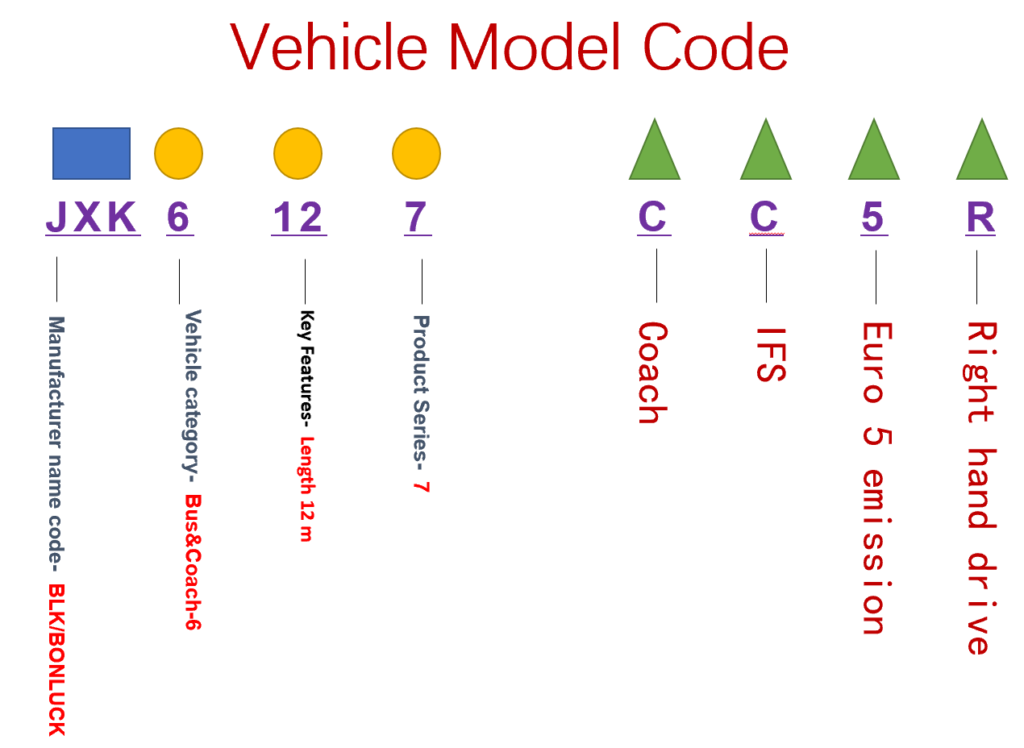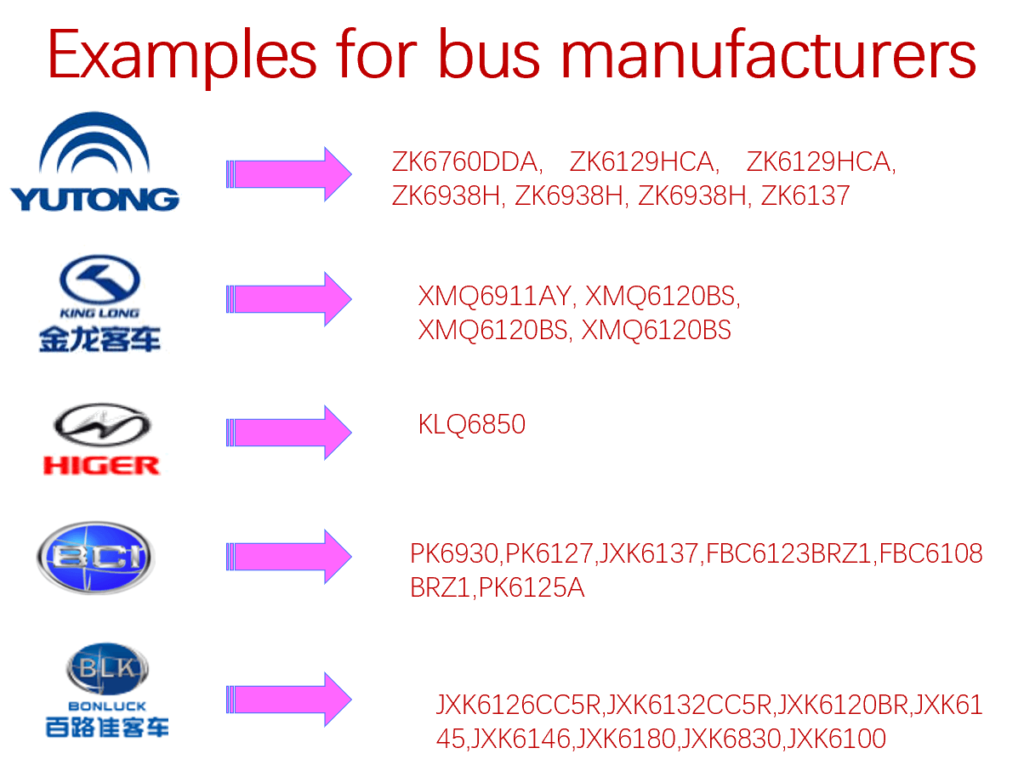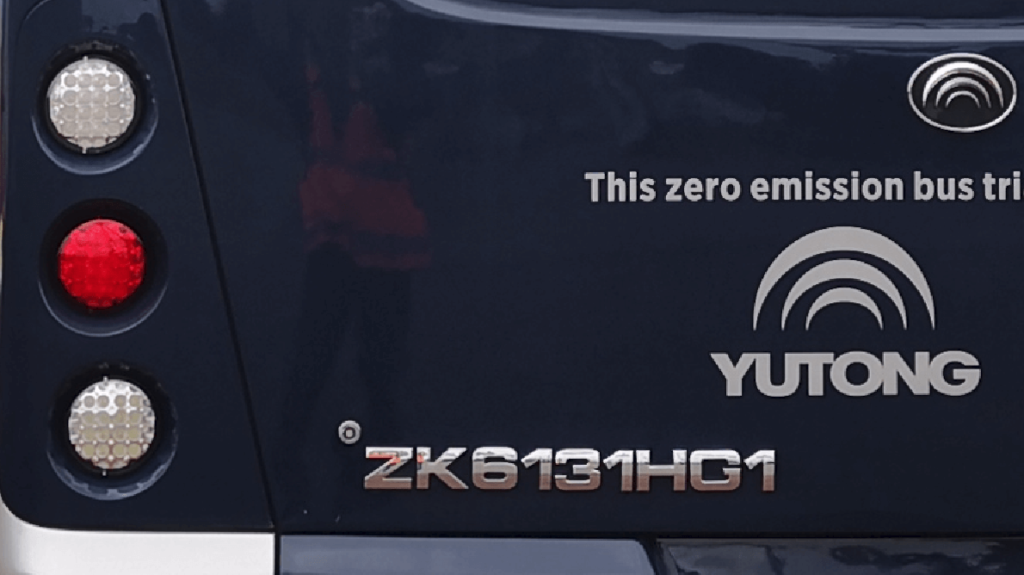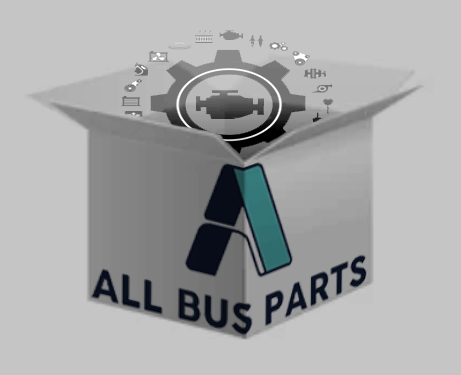A vehicle model is a number composed of a set of Chinese pinyin(English) letters and Arabic numerals formulated to identify the vehicle. China’s compilation of automobile product models is based on GB9417-88 “Automobile Product Model Compilation Rules”. Its basic model consists of two or three Chinese pinyin(English) letters and four to five digits, as shown in Figure 1-1:

Manufacturers name code
Indicate with two or three Chinese pinyin(English) letters of the Manufacturer’s name or location name.
Vehicle class and code
| code name | vehicle category | code name | vehicle category | code name | vehicle category |
| 1 | Ordinary truck | 4 | semi- trailer tractor | 7 | passenger car * |
| 2 | SUV | 5 | non-special-purpose special-purpose vehicles | 9 | trailer (Towbar trailers, semi-trailers, and center axle trailers) |
| 3 | Dump Truck | 6 | Bus * |
Main parameter code
The main parameter code of trucks, off-road vehicles, dump trucks, tractors, special-purpose vehicles, and semi-trailers is the total mass of the vehicle, all in “tons”. The total mass of the towing vehicle includes the maximum mass on the fifth wheel. When the total mass is more than 100 tons, it is allowed to use three digits.
The main parameter code of the bus is the length of the vehicle, with “meter” as the unit. When the length of the vehicle is less than 10 meters, it should be accurate to one decimal place and expressed in multiples of the length (meter) value
The main parameter code of a car is the engine displacement, with “liter” as the unit, and it should be accurate to one decimal place and expressed as its value + multiple values.
For the main parameter codes of special-purpose vehicles and special-purpose semi-trailers, if the difference between the main parameters and the main parameters of the original vehicle with the finalized chassis is not more than 10%, when the finalized vehicle chassis or the finalized semi-trailer chassis is used for refitting, the main parameters of the original vehicle shall be used. Parameter code. When the main parameter is less than the specified number of digits, “0” is used to occupy the place before the parameter.
Product serial number
The product serial numbers of various vehicles are located in the fourth part of the product model and are represented by Arabic numerals, and the numbers are used sequentially from 0, 1, 2…
Manufacturers custom code
The enterprise-defined code is located in the last part of the product model. When the structure of the same vehicle changes slightly and needs to be differentiated (such as gasoline and diesel engines, long and short wheelbases, single and double cabs, flat and convex cabs, left, Right-hand steering wheel, etc.), can be represented by Chinese pinyin letters and Arabic numerals, and the number of digits is also determined by the enterprise. Parts that are optional for users (such as heaters, radios, carpets, pattern plates, etc.) do not belong to changes in structural features, and should not be given self-designated codes.
Bus Classification
Classified according to the length of the vehicle: Minibuses – less than 3.5m in length; light buses – 3.5-7m in length; medium-sized buses – 7-10m in length; large buses – 10-12m in length; super-large buses – including articulated buses (vehicle length greater than 12m) and a double-decker bus (length 10-12m).
According to the different ways of use, it can be divided into tourism buses, city public buses, road buses, special buses, sightseeing buses, and school buses. A station wagon is a small passenger vehicle with no more than 17 seats.
Example of vehicle type coding rules (Figure 1-2)



